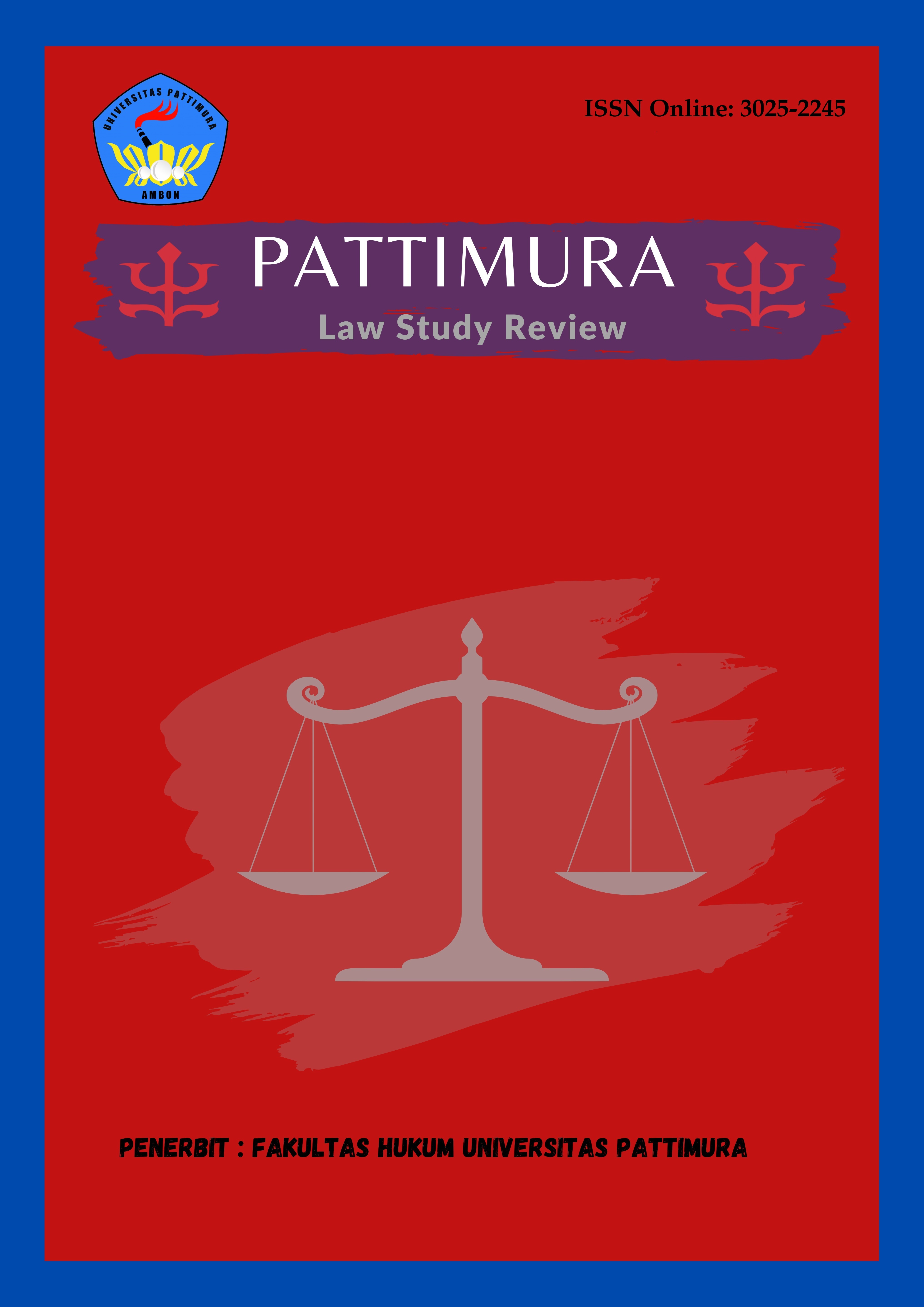Pengaturan Dan Pemenuhan Hak Pendidikan Anak Anak Pengungsi Di Negara Transit Berdasarkan Hukum Internasional
Abstract
Since the completion of the international convention on refugees (Convention Relating To The Status Of Refugees) in 1951 plus the 1967 protocol (Protocol Relating To The Status Of Refugees), until now Indonesia has not ratified the Convention into a form of legislation due to several obligations that according to the government are still not possible to ratify the convention. This type of research is normative juridical where the research is conducted by collecting primary, secondary and tertiary data obtained using literature studies. The collected data is analyzed qualitatively, the description of which is arranged systematically based on legal disciplines to achieve clarity on the problems to be discussed. The results of this study indicate that transit countries are required to provide protection for children trapped in migration or refugee situations. Article 3: States that every decision taken regarding children must prioritize the best interests of the child. Transit States must ensure that any policies or measures they take do not harm children in their care or custody, Articles 28 and 24 Transit States must ensure children’s access to education and health services, even if they are migrants or refugees. Refugee children have the right to an adequate education, and transit States must provide such access without discrimination, and the 1951 Convention relating to the Status of Refugees and its 1967 Protocol require States not to return individuals who are at risk of harm, including children. In transit States, if a child is at risk of abuse, exploitation or other threats in their country of origin, they should not be returned.
Downloads
References
Achmad Romsan, Pengantar Hukum Pengungsi Internasional: Hukum Internasionl dan Prinsip-Prinsip Perlindungan Internasional, UNHCR Indonesia Bandung: Sanic Offset, 2016.
Afifah Dwi Hasya, Pengungsi Anak: Diantara Pemenuhan Hak Pendidikan dan Tanggung Jawab Negara, Uti Possidetis: Journal of International Law ISSN 2721-8333 (online); 2721-8031 (print) Vol. 4 No. 2 (2023): 285-307.
Bahder Johan Nasution, Metode Penelitian Ilmu Hukum, CV. Mandar Maju, Bandung, 2008.
Finnemore, M., & Sikkink, K. (1998). International Norm Dynamics and Political Change. International Organization 52(4), 887–917. https://doi.org/10.1162/002081898550789.
Hamid, Sulaiman. Lembaga Suaka Dalam Hukum Internasional. Jakarta: Raja Grafindo Persada. 2002.
https://www.unhcr.org/mid-year-trends di akses pada tgl, 16 Oktober 2024.
https://en.wikipedia.org/wiki/Rohingya_refugees_in_Bangladesh.
Kristin, D., & Dewi, C. T. I. (2021). The Rights Of Children Refugee In Transit Country Under The CRC, A Case Of Indonesia: An Intended Negligance. Padjadjaran Journal of International Law, Vol 5 No 1.
Nur Kholif Hazin, Kamus Lengkap Bahasa Indonesia Super Baru, Terbit Terang, Surabaya, 2004.
Sumarnonugroho. Sistem Intervensi Kesejahteraan Sosial. Hanindita, Yogyakarta: 1984.
Van Apeldoorn L. J, Pengantar Ilmu Hukum, Pradnya Paramita, Jakarta 2005.
Copyright (c) 2025 Brian S Siahaya, Josina Augustina Yvonne Wattimena, Ekberth Vallen Noya (Author)

This work is licensed under a Creative Commons Attribution-NonCommercial 4.0 International License.
Authors who publish their manuscripts in this Journal agree to the following conditions:
- The copyright in each article belongs to the author, as well as the right to patent.
- Authors are able to enter into separate, additional contractual arrangements for the non-exclusive distribution of the journal's published version of the work (e.g., post it to an institutional repository or publish it in a book), with an acknowledgment of its initial publication in this journal.
- Authors are permitted and encouraged to post their work online (e.g., in institutional repositories or on their website) prior to and during the submission process, as it can lead to productive exchanges, as well as earlier and greater citation of published work.
- Authors have the right to self-archiving of the article (Author Self-Archiving Policy)













